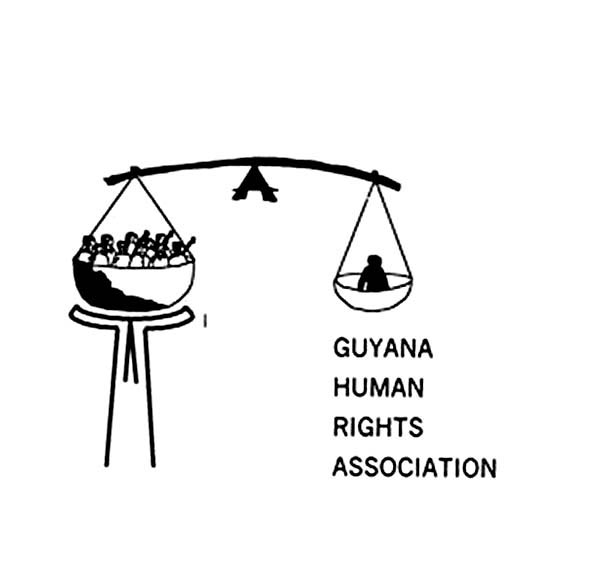As the world observes International Day for the Elimination of Violence Against Women today, the Guyana Human Rights Association (GHRA) has said that international trafficking of predominantly foreign women and girls into strip clubs and bars in Guyana is a serious problem.
According to a statement from the association, the trafficked women along with local men service an equally strong foreign clientele largely from goldfields and possibly oil rigs and construction workers.
This is promoted by a mix of armed Venezuelan gangs, Brazilians with mining contacts and local associates including complacent politicians, the GHRA said.
“The victims of this expanding industry are all women and girls, its perpetrators overwhelmingly men. The multi-cultural character of the clientele of trafficking, mining, oil-rigs and bars disguises the fact of heavy male domination,” the GHRA said in the statement issued yesterday.
And the fact that the responsibility to fight this rests primarily on an equally male-dominated police force, only reinforces the masculine dominance of all facets of the sex-trafficking problem, the GHRA said.
It added that this activity attracts little political attention either as a spin-off of the border dispute with Venezuela, or as a criminal enterprise.
“Sexual-based trafficking makes a convincing claim for priority attention as the focal point for the sixteen-day campaign surrounding International Day to Stop Violence Against Women. Focus is necessary on the part of all interested agencies on both the political and criminal dimensions of the problem,” the association stressed.
It was recalled that in November 2006 and 2007 civil society organizations in Guyana published the names of 127 organizations and groups in a three-page press statement endorsed by over 100 named organizations across the length and breadth of Guyana calling for reform of sexual violence laws. This led to the 2010 more progressive Sexual Offences Act being passed, representing real progress in the legal status of women by political action.
By political activism, the GHRA said it refers to mobilizing broad-based popular indignation.
Viewed globally, it added, the evolution of gender law and policy in Guyana has been generally progressive. It pointed out that the laws include legal protection for equal treatment of women with respect to division of property in divorce proceedings, termination of pregnancy, age of consent, sexual offences, along with milestone appointments such as naming the first female Caribbean Chancellor of the Judiciary.
However, over a decade later, the association said, it is valid to question whether this trend was being displaced by one in which Guyana was regressing, by seeing and treating women, not as equals in law, but in the way men choose to see and treat women. The proliferation of strip clubs was only one example, it said.
Additionally, according to the GHRA the wide-spread availability of pornography on social media via the internet was further eroding a concerted legal response to sexual violence in favour of one in which men are demeaning women. It added that the more pornography is normalised the more difficult it is for men to recognize they are using force when engaging in sex with involuntary sex workers, undermining hard-won progress on protection of women against violence in Guyana.
“Further evidence of deterioration in gender equality in domains dominated by males is manifest in the tolerance of rancid misogyny by elected officials in the National Assembly. The rules and decorum which should govern Parliament as a site of gender equality are set aside in preference for a regime driven by how men see and humiliate women,” the statement said.
According to the GHRA the behaviour in Parliament that would not be tolerated in rum shops attracts no penalties, even when it reaches levels of criminality, illustrating the strength of the ‘bro’/’brudda’ culture. It said it is only a matter of time before such regressive influences start to erode our liberal approach on issues such as termination of pregnancy and women’s health.
International Day to combat Violence Against Women has become, in recent years, the start of a 16-day campaign, culminating on December 10th – International Human Rights Day.





